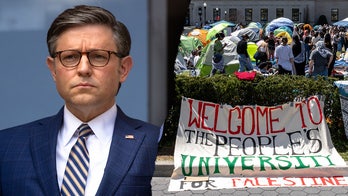Two senators hope to require political groups to name the donors who spend millions of dollars to influence federal campaigns.
Legislation sponsored by Democrat Ron Wyden of Oregon and Republican Lisa Murkowski of Alaska would require so-called super PACs to reveal their sources of money, just as federal candidates must do.
Outside groups spent $1 billion in efforts to help or attack various candidates in the 2012 elections. Some individuals gave $1 million or more.
These independent groups generally do not have to identify their donors. Critics say major influences on elections should be more transparent.
"Where there's significant campaign spending, everyone has to play by the same rules," Wyden said in a statement. Voters "deserve to know where the money is coming from and where it's going," he said.
Murkowski said many Republicans, Democrats and independents "were concerned over the role of big money and secret donors in the last election."
Super PACs can raise and spend unlimited funds to help candidates, but cannot coordinate expenditures or strategy with a campaign.
The emergence of super PACs and other outside groups, emboldened partly by the Citizens United decision by the Supreme Court in 2010, has done more than anything else to reshape the contours of campaign fundraising.
A few federal court cases have broadly eased campaign finance rules, allowing donors to give unlimited sums. That kind of money largely has gone to super PACs.
Many super PACs have affiliated nonprofit "social welfare" organizations that spent hundreds of millions last year on issue ads. Those groups don't have to disclose their donors because they're governed by tax law.
Open-government groups have pushed Congress, to no avail, for a law that would require politically active groups to disclose their finances.




